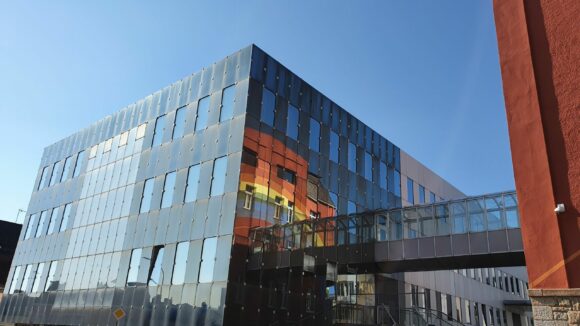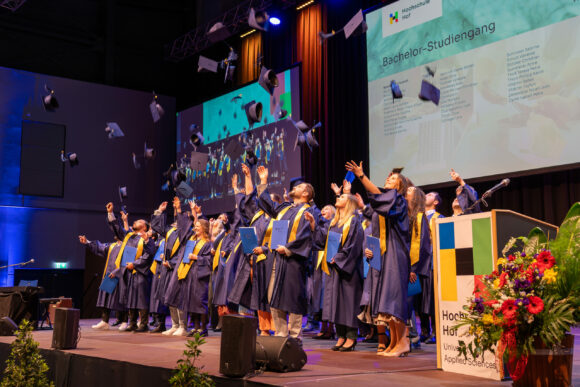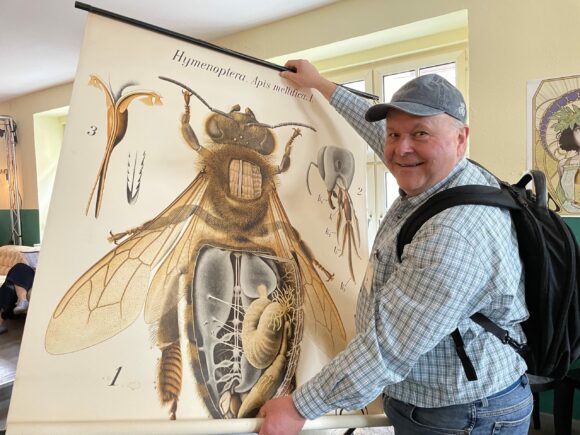The OSB Alliance – Bundesverband für digitale Souveränität e.V. (Federal Association for Digital Sovereignty ) represents around 170 member companies in the open source industry, which, according to its own figures, together generate more than 1.7 billion euros annually in Germany. Together with scientific institutions and user organizations, the association works to anchor the importance of open source software and open standards for a digitally sovereign society in the public consciousness
The Institute for Information Systems at Hof University of Applied Sciences (iisys) has been part of the OSBA since its early days. Prof. Dr. René Peinl reveals why in an interview with Campuls-Digital…
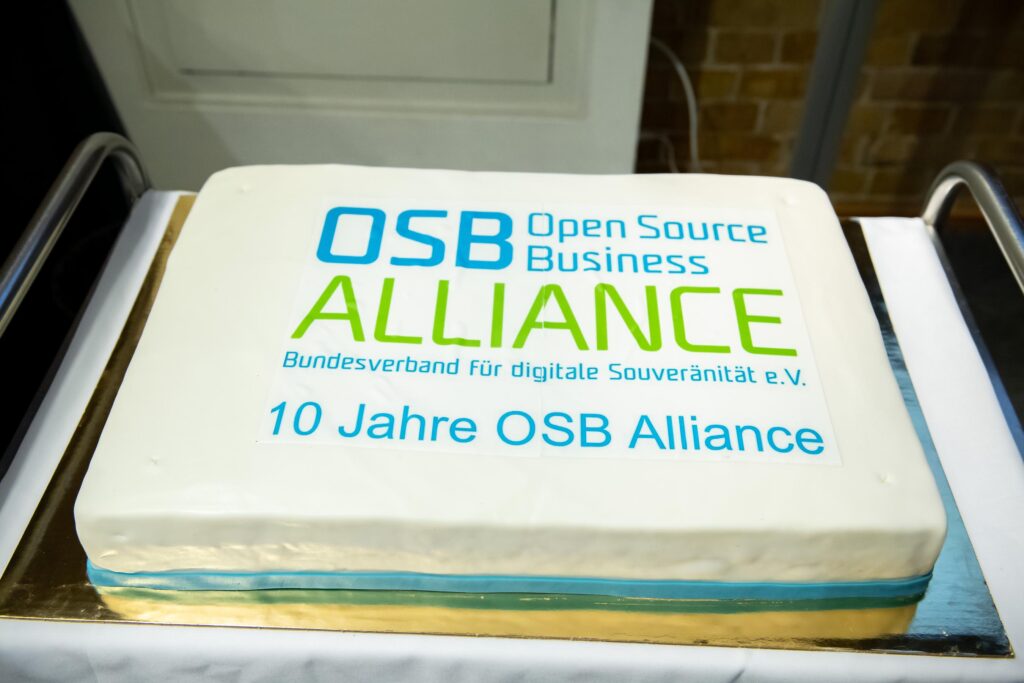
Prof. Dr. Peinl, the OSBA recently celebrated its 10th anniversary in Berlin. How did you experience the accompanying network meeting and how does the association present itself from your point of view a decade after its foundation?
The association has evolved from the Linux-Verband, founded in 1997, and the Linux Solutions Group e.V., founded in 2005. (Lisog), which was founded in 2005. With its current 170 members, it is doing well, and that was also evident at the network meeting. With the topic “digital sovereignty”, which has always been part of the open source movement, it has been focusing for some time now on an aspect that is also becoming increasingly important politically and which for a long time has received too little attention in Germany.
The Institute for Information Systems was one of the first members of the alliance. What is the benefit of this commitment for the institute and the university?
As the scientific director of a public institution like the iisys, I feel a moral obligation to live up to one of the OSBA guidelines – namely “public money, public code”. In computer science, we use open source software (OSS) for actually all projects – starting with the Linux operating system, to programming frameworks such as React or Angular, to AI models based on Tensorflow or PyTorch. Otherwise, it would not be possible at all to create relevant solutions in the short time frame of the projects. Accordingly, we also publish the results as open source software. I also see open source software as an important building block of the business strategy for the IT service providers in the region, which I would like to promote.
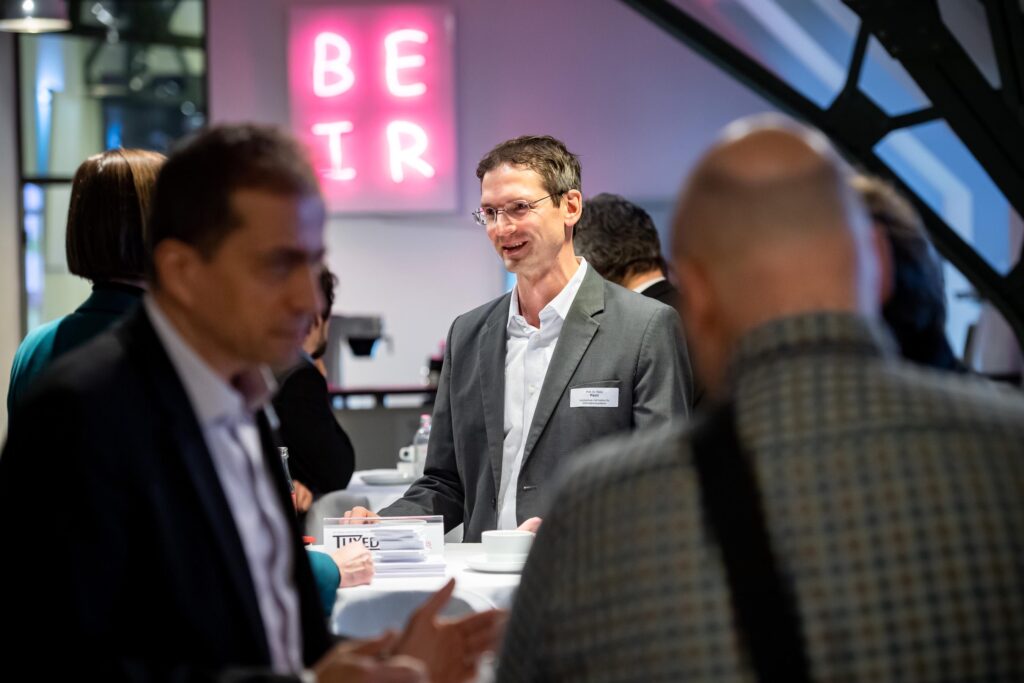
In your view, how important is the postulated goal of digital sovereignty for the society of the future – and where do you see the key threats?
I think we have to be careful not to slip into dystopian future scenarios if the big platform operators get too much power
Digital convenience must not be an argument for undermining data protection and user self-determination. This is a matter for policymakers, but also for every individual, to behave accordingly.
Prof. Dr. René Peinl
Data privacy is often demanded, but platforms that obviously violate data privacy are still used intensively. Supposedly because there is no alternative
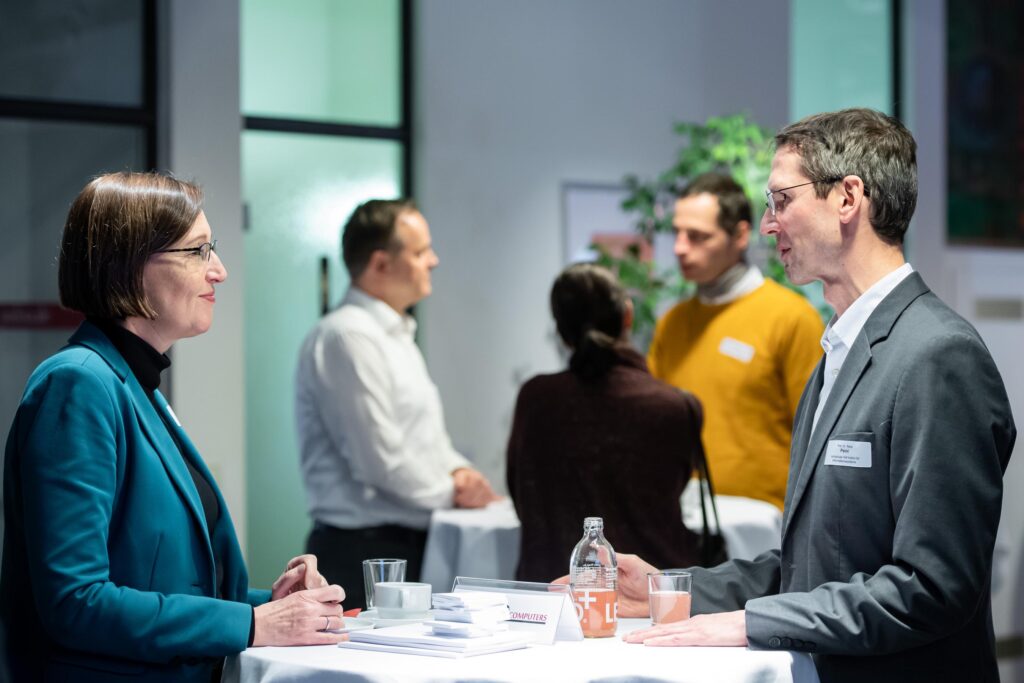
If the enormous sums invested by government agencies in MS Teams, Zoom and Co. since the Corona pandemic were invested in the further development of open source software and the operation of German and European cloud services on this basis, we would already have equal alternatives and real choices
Because, as we all know, “data is the new oil”, there is a natural tendency for monopolies to form and the lead of global corporations is constantly increasing.”
Prof. Dr. René Peinl
Incidentally, my colleague Prof. Wagener is also researching these effects in his new research group at iisys
How exactly can you imagine network collaboration in practice?
There is a very wide spectrum, from low-threshold exchange of experience to mutual support in the further development of open source software to political lobbying and applying for funding projects.
At the network meeting, plans were certainly also made and projects discussed. Can you give us a little insight here?
Currently, the OSB Alliance is very much focused on the Gaia-X project “Sovereign Cloud Stack” (SCS), which not only receives a lot of public interest, but is also the largest OSBA-led project carried out so far. The roots of the project go back to the early days of the association. I myself joined OSBA in 2011 because of the topics “Open Source Integration Initiative” and “German Cloud”. The ideas discussed there can be found to a large extent in the SCS today.
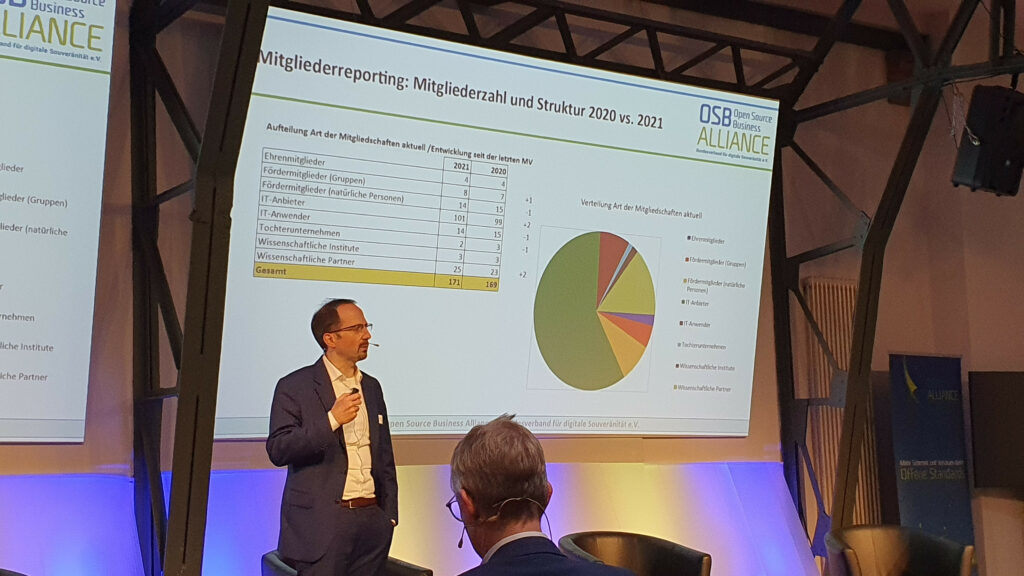
Are there otherwise trends and tasks that the industry has to face?
In addition to digital sovereignty, the topic of artificial intelligence (AI) has kept the media and also society very busy in recent years. That’s why we are currently in talks to establish a “Deep Learning and Open Data” working group in the OSB Alliance that will take this trend into account. Analogous to the principle of “public money, public code”, which is fortunately being implemented more and more in politics (e.g. also in the new coalition agreement), the idea is also to demand “public money, public data”. Software for AI is fortunately mostly open source software anyway. But without appropriate data, the software is of little use. Therefore, general-purpose data such as speech for speech recognition and speech synthesis, images for classification and object recognition, or texts for machine understanding of text that have been processed or obtained with public money should also be available to the general public
In the medium term, the Sovereign Cloud Stack could also be further developed in the direction of a platform for the development of one’s own AI models, so that SMEs are not dependent on global corporations and their cloud offerings there either. Pre-trained models should also be kept there for further use so that the immense energy requirements of the AI models do not get out of hand during training and thus also contribute to climate protection.
Who can I contact if I have questions or if I want to get involved in the community myself?
The OSBA office has been very successfully and competently managed by Dorothee Otto for years. She is certainly the one who can most quickly put you in touch with the appropriate contacts in the large network.
Further information:
Open Source in the new coalition agreement
Recording of the OSBA network meeting in Berlin




